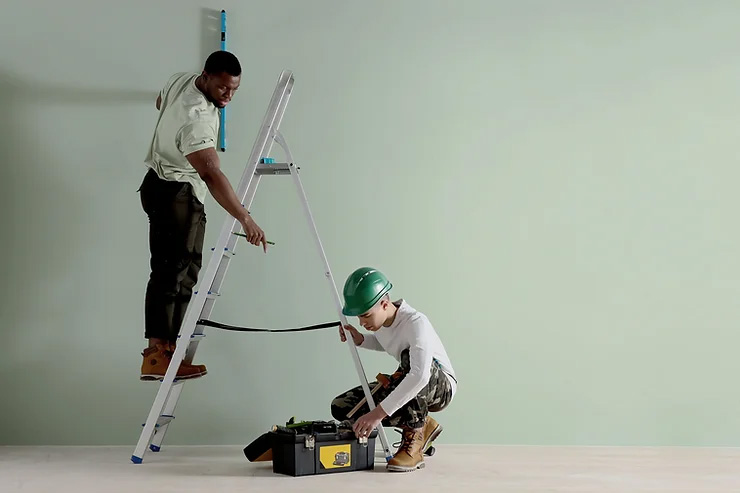
Unless you’re already a seasoned handyman by profession, one of the most intimidating things about becoming a landlord is the regular repair and maintenance a property requires.
Whether you’re about to rent your property for the first time or you are trying to fill that empty unit on the first floor, this post will help you tighten up your maintenance habits and update your checklists so that your property functions like a well-oiled machine.

4 Starting Issues: Address Before Signing
When deciding to rent your property, the first thing you want to know is that you’re setting the rent fairly. Use these guidelines to make sure you’re getting the most out of your property while a tenant still gets a fair deal.
Once you’ve set the rent and advertised the property as available, there are five key things you’ll want to double-check before signing a new lease.
1. Building Codes
Landlords are responsible for building maintenance and protecting the safety of their tenants. One essential way to do that is to verify that you’re adhering to building safety codes. We’ve included common building codes here to illustrate what you should expect. Building and safety codes typically regulate:
- Asbestos
- Maximum number of people per unit
- Smoke detectors
- Carbon monoxide detectors
- Adequate lighting in common areas
- Plumbing
- Electrical wiring
- The structural integrity of the building
2. Rubbish Disposal and Sanitation
Before renting your unit, double-check the rubbish collection schedule. Does it run smoothly and regularly? What will tenants need to do each week with their rubbish? Including these details in tenant interviews or rental agreements guarantees that communication on sanitation is spick and span from the get-go.
3. Utilities
Between tenants, you’ll want to review the utility situation on your property. If you’re covering any utilities as the landlord, make sure to double-check all meters are working correctly and that there aren’t any leaks anywhere along the way. Even a small leak can be costly in the long run. Finally, you’ll want to make sure fast internet is available. While you’ll rarely cover that expense as a landlord, it’s a necessary utility to provide access to.
4. Common Areas
If you have common areas around your property, are they all clean and ready for new tenant use? Between tenants is a great time to check in on the regular maintenance needs.
General Maintenance Checklist
Regular maintenance constitutes a significant portion of a landlord’s responsibilities during a lease. In general, a landlord is responsible for anticipating tenants’ needs relating to property use. This includes regular, scheduled maintenance as well as repairs when emergency situations arise.
To stay on top of regular maintenance, every six months take the time to complete this checklist for every property or unit:
- Replace batteries in smoke alarms and carbon monoxide detectors.
- Check property efficiency. Compare utility bills from the same month of the previous year to quickly assess if they’re still in top working condition. This is especially important if you include any utility bills with a tenant’s rent.
- Building maintenance. If you don’t visit the property often or live nearby, you don’t want to go more than six months without an in-person inspection. Make sure common areas are clean, the garden is taken care of, and the roof and gutters don’t have any leaks or weak spots.
- Talk to Tenants. This doesn’t have to be a formal meeting, but check-in to see how everything is going either in person or via email. They’ll be aware of the day-to-day issues that you may not catch in a routine inspection.
By making a habit of locating small problems through regular maintenance and inspection, you ensure you won’t have to fix big (aka more expensive) problems later.
Hiring a property manager
A property management company can be on call for you, so you get a healthier work/life balance. They also come with their own vendor contacts and can usually provide better quality and more cost-effective regular maintenance. Plus, property management companies can handle tenant turnover efficiently.
By partnering with R.A.D Property Management, we can take much of the day-to-day management off your plate, keeping your property in top condition for you and your tenant.
